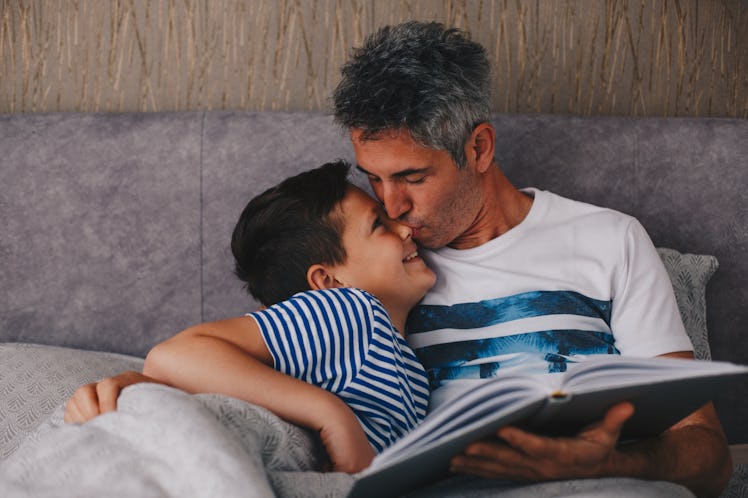My Struggle To Raise An Emotionally Accountable Boy
I’m afraid my son will lose touch with his feelings, but he’s more afraid of being weak.

Many days, my family’s home feels as if it were littered with small landmines. My wife and I never know when our 9-year-old son is going to explode if we accidentally kill an insect, have to move Friday pizza-and-movie night to Saturday, or accidentally dismember one of his many Lego creations. After these meltdowns, our son often droops his head and admits that his outbursts make him “feel like a baby.”
When he says this, I hear only his deep shame.
It crushes me that our young son has already been yoked by an expectation of masculinity that forbids betraying emotional vulnerability. For years, I was convinced that I had the power to liberate him from this expectation. When he was a toddler, I asked him to identify the emotional states of characters in the books I read aloud to him. How would he feel, I asked, if, like the main character, he had to fall asleep during a thunderstorm or if his dog died?
I wanted to raise a boy whose emotional muscle memory gave him access to the full spectrum of his deeper humanity and set him up for success in a world that increasingly requires emotional intelligence. I wanted to raise a boy who would be emotionally accountable to himself and to others.
As my son grew older, conversations about fictional characters became talks during rides home from school about real friendship struggles and the resulting feelings beneath his outbursts at me or other drivers.
“Honk your horn!” he’d roar from his car seat. “He’s going too slow!”
“I hear your frustration,” I’d say. “But, c’mon, is it really that driver you’re upset with or someone else?” Silence. “Did something happen at school that hurt your feelings?” I’d ask.
Some days, my son would dig deeper and reveal hurt feelings over a playground slight. He’d hug me when we got home and murmur “thank you.” Times like this reaffirmed, as they would for any parent, that my parental compass needle was pointing True North.
Last month, I came across a cache of my son’s drawings, snarling warriors with inflated, hyper-muscular torsos and arms. This was when I realized: The battle for my son’s perceptions of masculinity had begun. I was faced with the dilemma of so many parents: I wanted my son to hang on to his burgeoning emotional self-awareness, but I didn’t want him walking around with a target on his back. He was too old to cry openly in public without traumatizing repercussions, but I couldn’t bear the thought of him succumbing to a buffed superhero masculinity that armored itself against vulnerability.
Recently, my son’s school friend, his best friend all year long, dumped him for a more popular classmate. My son was crushed.
“How about letting her know that she really hurt your feelings?” I asked him on the ride home from school.
“All of your talk about feelings doesn’t work, Dad!” he yelled, his voice cracking. “It just makes you look — look weak!”
Admittedly, that last word seared. I tried to rebound, explaining why having an honest, heartfelt conversation with someone who hurts you is an act of courage. My words fluttered past his steely glare and out the open window.
That night I found more cartoonishly muscled drawings. They were armed with weapons. My son had written “ME” with an arrow pointing to one of them. Yes, this is completely normal, and given the overwhelming peer pressure to ‘man up’ that lies ahead for boys in middle school, online and on social media, I knew this could be the beginning of a runaway train.
A few days later, my son’s third grade teacher held a virtual parent appreciation day. Students stood and read aloud messages of gratitude to their parents. When it was our child’s turn, he stood up next to a small table with roses in a vase and held up his drawing labeled “ME.” With his other hand, he read from a handwritten script. “Thank you for teaching me that I don’t have to look like this to be a boy if I don’t want to and that I can cry and tell you my real feelings,” he said. He put the papers down and held up one of the roses. “This is for both of you,” he said.
The battle for my son’s masculine soul was far from over, but at least he was embracing rose petals as well as the thorns.
Andrew Reiner teaches at Towson University, and is the author of Better Boys, Better Men: The New Masculinity That Creates Greater Courage and Resiliency. You can find him on Instagram at @andrew.reiner.author.
This article was originally published on